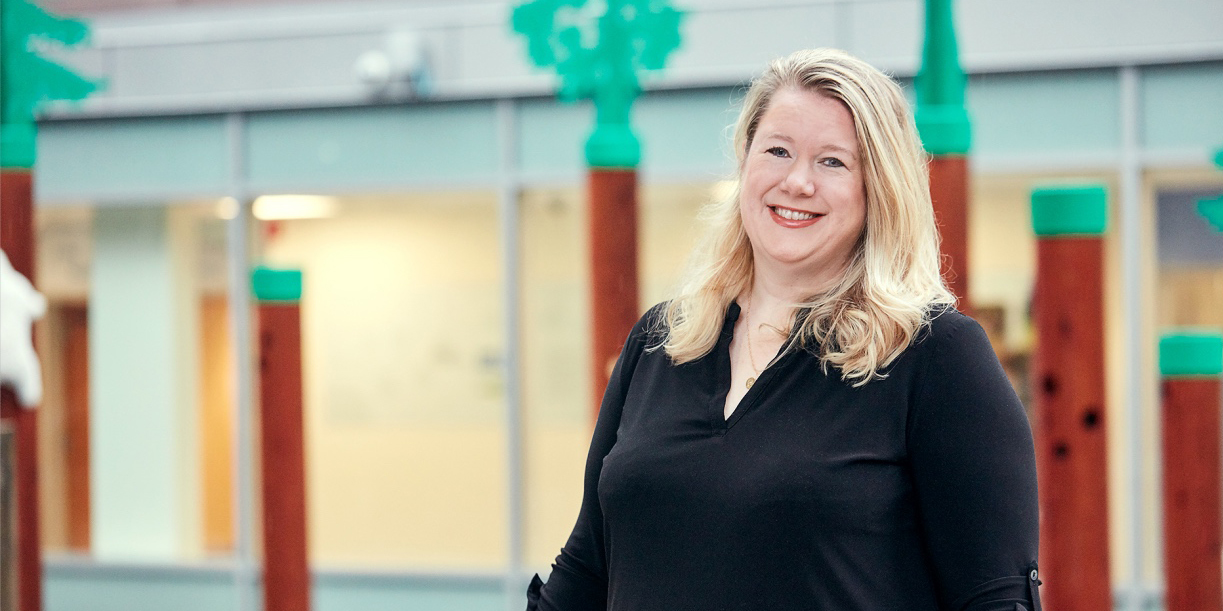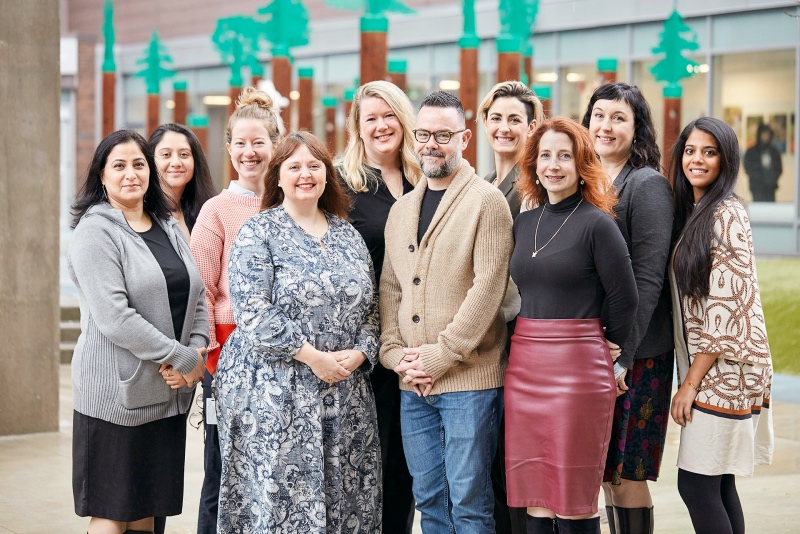Building up a holistic approach to youth mental health
January 27, 2020

“We realized that in order to take on a problem this big, it wasn’t about hiring two more psychiatrists. It’s about building the capacity of people who take care of children and youth in their communities.”
For many family physicians, it’s a common scenario. A teenage patient comes to their office in crisis, seeking care for a mental health issue. The wait is up to a year to see a child psychiatrist, and the family can’t wait.
“What’s happening is these people are stuck,” says Dr. Jennifer Russel, and as she explains it, it’s exactly the situation the Compass program set out to address.
As a psychiatrist and clinical director at Compass, Dr. Russel is part of a multidisciplinary team set up a little over a year ago to provide virtual support to clinicians caring for youth with mental health and substance use concerns. Compass serves both British Columbia and the Yukon.
“Many of them are in very small areas and have nowhere to turn. They’re calling us about the hardest case in their practice, the one that keeps them up at night.” — Dr. Jennifer Russel, psychiatrist
Providers who call Compass have access to the expertise of a multidisciplinary team ― child and youth psychiatrists, social workers, nurses and psychologists ― who all have experience in mental health and substance use issues.
“It’s rare that providers have access to multiple lenses,” says nurse coordinator Kevin Lorenz. “Sometimes it’s a nurse, psychologist or social worker who has that expertise they are seeking.”
For each call that comes in, the Compass team, has two goals: the first is to respond to the mental health or substance use need; the second is to support the provider. Following the consultation, the care provider receives a written record with recommendations for their patient’s chart.
In around 90% of cases, the Compass team gives the care provider all the information and support they need in one phone call.
For the remaining 10%, they offer follow-up phone consultations, telehealth assistance for the provider and their patient, customized education or other resources ― whatever the provider needs to feel supported.
“We got an urgent call a few months ago about a kid who was admitted to a remote hospital in the Yukon,” recalls Dr. Russel about one case. “Kevin and I were able to provide immediate telehealth assistance to help the clinicians there come up with a plan.”
“This prevented a single mom with two kids from having to fly all the way to Vancouver, which would have split up her family and prevented her from working.”
Based out of BC Children’s Hospital, a part of BC’s Provincial Health Services Authority, the idea for Compass came from Dr. Susan Baer, a psychiatrist, and Sonja Sinclair, the program director.

The multidisciplinary Compass team from BC Children's Hospital
“I knew it would be a once-in-a-lifetime kind of opportunity,” Dr. Russel recalls about joining the program as they prepared to launch. “It was a chance to solve a problem in a different way.”
One of those differences is a commitment to provide care for children and youth with mental health or substance use needs in their home communities whenever possible.
Dr. Russel says this is one of the program’s biggest benefits: leveraging the strengths of the relationships that the dedicated providers in the communities already have with their patients.
“When they can provide care to these kids,” she adds, “the ones they delivered, saw through strep throat or a broken leg — there’s an opportunity to make sure they get the best care possible.”
“And I think there’s a lot of medicine in that relationship for both of them.”
After several calls and through the education and other resources they provide, Dr. Russel says that many clinicians now feel confident enough to address future cases on their own. And if they decide they need more support, they know where to go.
“These are the kind of cases that contribute to provider burnout and compassion fatigue,” she adds. “At the end of the call we want them to feel capable, like they can keep going with it. We want them to feel like they have hope.”
The challenge now is keeping up with demand. To date, the Compass team has handled over 1,200 unique cases ― a number that continues to grow as more people learn about the service.
But with support from both the hospital and BC’s Ministry of Health, she is confident that together they can continue to build capacity among clinicians and continue to care for the children and youth in BC and the Yukon, one case at a time.
“Most of us tend to think about mental health with a scarcity mentality, thinking ‘there’s not enough,’” says Dr. Russel. “But working with these dedicated clinicians across the province has shifted my perspective.”
“I now believe the support and the answers are there; it’s just a matter of looking for them.”
The opinions stated by Physician Changemakers are made in a personal capacity and do not reflect those of the Canadian Medical Association and its subsidiaries.
